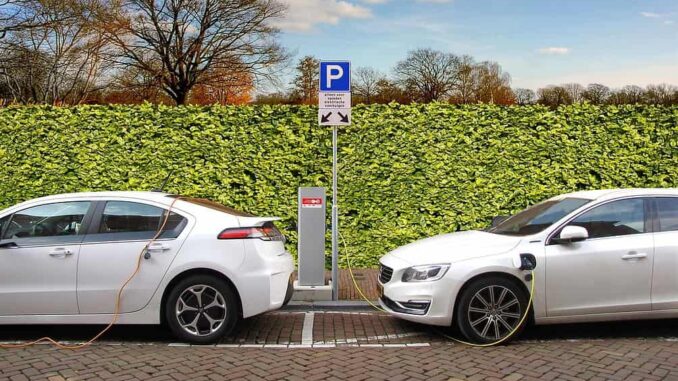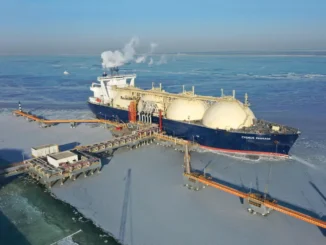
Thank you for sharing this story! However, please do so in a way that respects the copyright of this text. If you want to share or reproduce this full text, please ask permission from Innovation Origins (partners@innovationorigins.com) or become a partner of ours! You are of course free to quote this story with source citation. Would you like to share this article in another way? Then use this link to the article: https://innovationorigins.com/en/chinese-ev-invasion-in-europe-time-for-mining/
The arrival of five thousand Chinese electric cars in the port of Vlissingen: some see it as a good development, others as an invasion. It marks a symbolic shift in the European car market. As Chinese companies such as BYD set foot in Europe, the debate is flaring up about the need for mining ‘in our own backyard’ to get the much-needed raw materials for EVs. Only then can Europe compete in the EV market.
Thank you for sharing this story! However, please do so in a way that respects the copyright of this text. If you want to share or reproduce this full text, please ask permission from Innovation Origins (partners@innovationorigins.com) or become a partner of ours! You are of course free to quote this story with source citation. Would you like to share this article in another way? Then use this link to the article: https://innovationorigins.com/en/chinese-ev-invasion-in-europe-time-for-mining/
The ship that arrived in the Dutch port on Wednesday is only the first in a long series. In the next two years, seven more ships will come this way. China’s BYD alone produced more than three million electric and hybrid cars last year, and aims to bring hundreds of thousands of vehicles to the international market every year. This, together with the fact that China accounts for three quarters of global battery production, gives the gigaland an excellent position in the EV market.
China is also among the world’s biggest players when it comes to mining raw materials such as palladium and aluminium. Raw materials that we desperately need in Europe for electric cars, and also for wind turbines and other innovative technologies that contribute to a green future.
Europe is also preparing for the transition to a future with EVs, including expanding its battery capacity for electric cars. However, this is dwarfed by China’s infrastructure. A major problem remains the fact that the extraction of the necessary raw materials, is hardly taking off. And that is causing stagnation.
Crucial role of mining
Is it time for Europe to invent mining on its own continent? Professor Mike Buxton at TU Delft, an expert on mining, said in an earlier interview with Innovation Origins: “At just over a kilometre depth, you can find copper in Poland’s Kupferschiefer. In Scandinavia, you find platinum and nickel: important for battery production.” There is probably still a lot we don’t know about what metals are hiding underground, predicts the professor. “We have already explored the surface of Europe very well. In fact, it is the best explored geological area in the world. But in contrast, we have relatively few details about what is going on 400 metres underground.”
Thank you for sharing this story! However, please do so in a way that respects the copyright of this text. If you want to share or reproduce this full text, please ask permission from Innovation Origins (partners@innovationorigins.com) or become a partner of ours! You are of course free to quote this story with source citation. Would you like to share this article in another way? Then use this link to the article: https://innovationorigins.com/en/chinese-ev-invasion-in-europe-time-for-mining/
Last year, Sweden discovered the largest amount of rare earth elements ever found in Europe. The elements are important building blocks to make Europe’s green transition possible in the long run. “Fantastic news; we need to become independent from China as soon as possible,” Buxton said. Mining company LKAB’s project in Sweden is a step towards autonomy, but it is a long-term project. It is expected to take 10 to 15 years. Only after that will we be able to benefit from the find.
While Europe is concerned about China’s dominance of the EV market, it also brings benefits. The supply of cheaper Chinese electric cars has a positive impact on the energy transition, as a large group of consumers can afford these EVs. However, the environmental impact is also determined by the way raw materials are extracted and processed, and Europe has no control over this now. This again highlights the importance of ‘mining in our own backyard’.
The way forward
Europe, meanwhile, seems to be cautiously taking action. Late last year, new legislation was agreed to move the production and processing of essential raw materials to the EU.
The challenge for Europe lies in balancing economic, environmental and geopolitical interests. In any case, the discovery of rare earths in Sweden offers a unique opportunity to regain control of the supply chain. The next few years will determine Europe’s position in the global EV market.



